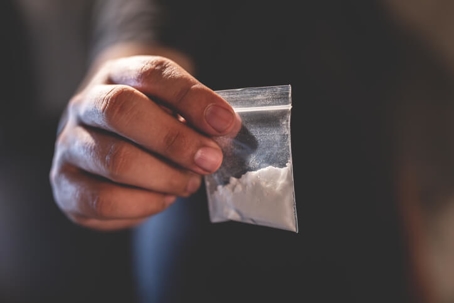Facing a drug possession charge can be a daunting experience, carrying severe penalties that range from heavy fines to prolonged jail time, depending on the circumstances. Such charges involve the unlawful possession of controlled substances, which can vary from prescription medications to illicit drugs. Navigating the complexities of the legal system alone can often be overwhelming and perilous. Therefore, hiring a seasoned criminal defense attorney is a crucial step in protecting your rights, devising a robust defense strategy, and possibly reducing your sentence or even getting your charges dismissed.
Understanding Drug Possession Charges
Drug possession charges refer to accusations of unlawfully carrying or owning controlled substances. These substances could be a variety of drugs, both legal and illegal, ranging from marijuana and cocaine to unauthorized prescription drugs like opioids. The seriousness of the charge often depends on several factors, including the type and quantity of the drug, the intended use (personal consumption vs. intent to distribute), and the jurisdiction’s specific drug laws.
Laws on drug possession can vary greatly, and they are frequently updated, which adds another layer of complexity to these charges. Simple possession is generally considered a less serious offense than possession with intent to distribute, though both can lead to significant legal penalties. Penalties can also be more severe if the possession occurred in certain locations, like near a school. Understanding these charges and the accompanying potential legal consequences is a critical first step when faced with such allegations.
Role of a Criminal Defense Attorney in Drug Possession Cases
The role of a criminal defense attorney in drug possession cases begins with an initial consultation and a comprehensive evaluation of the charges. The attorney assesses the situation, reviews the available evidence, and explains the potential legal implications to the client. Based on this assessment, they provide a realistic outlook on the likely outcomes of the case and offer guidance on the best course of action.
After the initial consultation, the attorney then investigates the details of the case thoroughly. This could involve interviewing witnesses, collaborating with private investigators, and analyzing police reports or other relevant documents. They study evidence, aiming to identify flaws or irregularities in the prosecution’s case. The attorney then develops a defense strategy tailored to the unique circumstances of the client’s case, which may involve challenging the legality of the search and seizure, the accuracy of the drug identification, or even the handling of the controlled substances in question.
Ways a Criminal Defense Attorney Can Help
- Plea Negotiation: Criminal defense attorneys are adept at plea bargaining. They negotiate with prosecutors to potentially reduce charges or lessen the severity of the sentence. These negotiations might result in a charge being reduced from felony drug possession to a misdemeanor, or even a diversion program that, if completed successfully, could lead to the charges being dropped.
- Litigation: If the case goes to court, an attorney represents the client during the trial. They challenge the prosecution’s evidence, cross-examine their witnesses, and present arguments in the client’s favor. The attorney’s understanding of courtroom procedures, rules of evidence, and case law can significantly influence the outcome of the trial.
- Expungement: Depending on the jurisdiction and the specifics of the case, an attorney may assist in expunging, or clearing, a drug possession charge from a client’s record. This process is invaluable for maintaining future employment opportunities and personal reputation. The attorney navigates the expungement process, filing necessary paperwork, and arguing before the court as needed.
Importance of Legal Representation
Legal representation is of paramount importance when facing drug possession charges. The intricacies of drug laws, the potential severity of penalties, and the complexities of the legal system make it essential to have a knowledgeable and experienced criminal defense attorney by your side. An attorney can navigate the legal process, provide a clear understanding of your rights, and develop a strong defense strategy tailored to your specific case. They have the expertise to evaluate the evidence, challenge the prosecution’s case, and explore potential avenues for reduced charges or alternative sentencing options.
Contact The Benjamin Law Firm Today
When facing drug possession charges, the assistance of a skilled criminal defense attorney is invaluable. Don’t face these serious charges alone – reach out to a trusted attorney at The Benjamin Law Firm who can help you achieve the best possible outcome in your drug possession case. By having skilled legal representation, you significantly increase your chances of obtaining a favorable outcome, protecting your rights, and minimizing the potential long-term consequences associated with a drug possession conviction. Contact us today to schedule a consultation.
The post How an Attorney Can Help in Your Drug Possession Case appeared first on Benjamin Law Firm.

